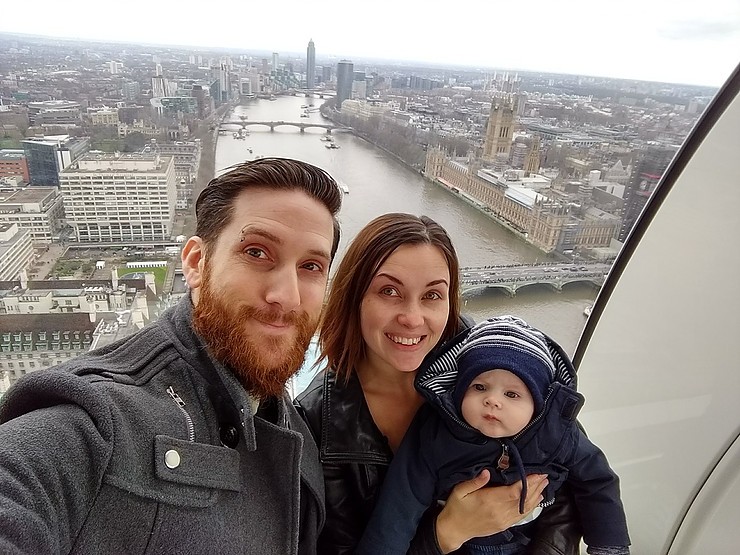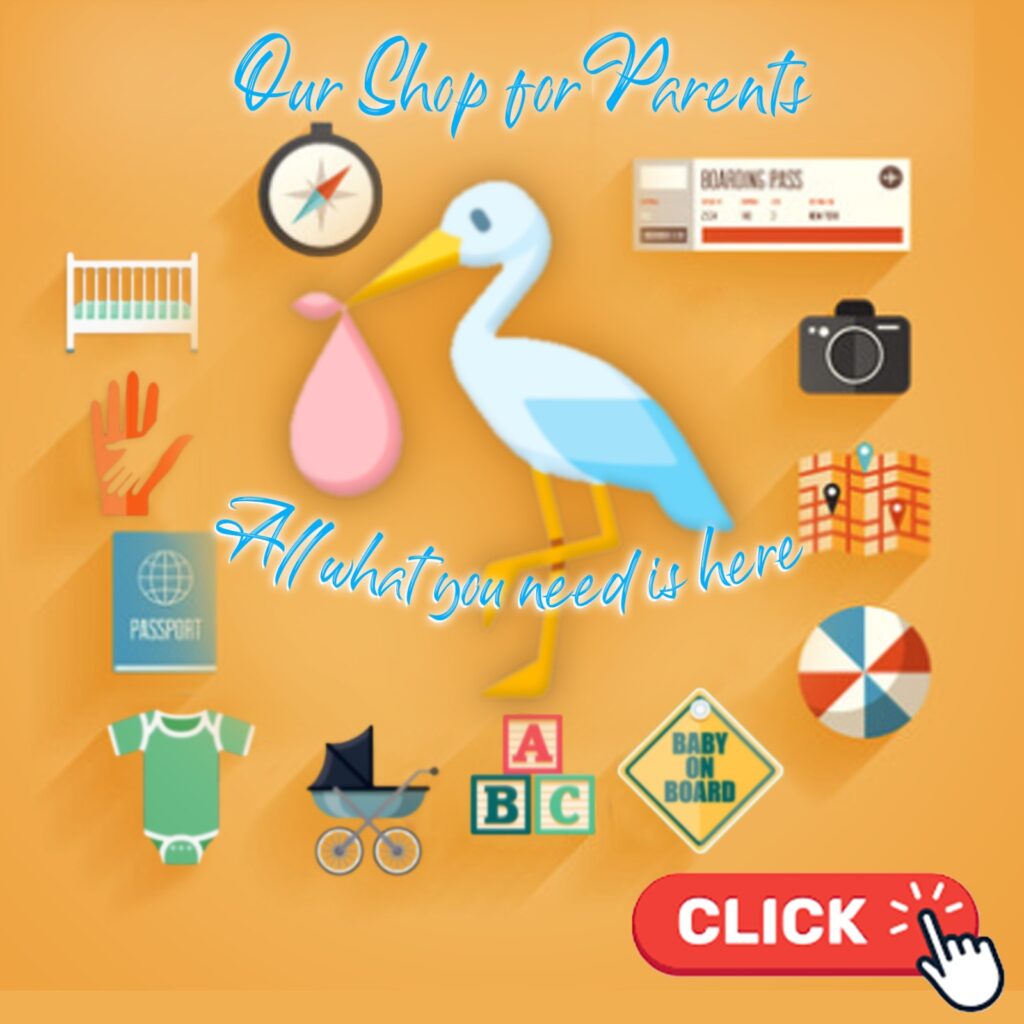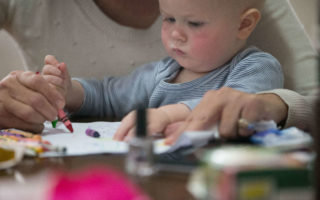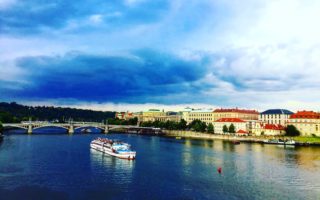Expat life is one of the most amazing things that happened to us because primarily it is full of adventurous spirit, excitement, and uniqueness. Living as an expat may be challenging sometimes; moving abroad might be frustrating also, but what’s most important, we learn every day, we broaden our minds, open our souls and get to meet more people, more customs, and more things. In short, it is a lot of fun!
In our recent post, we have looked in-depth on how to move overseas in just one-month time. Today we are going to take one step back and consider a few incredibly important things before you even think about moving abroad with a toddler.
Things to consider before moving abroad
“I want to move abroad but I don’t know where to start.”
“I am scared to move abroad. What if..?”
These are the most common concerns we hear every day. We want to move abroad but there are millions of things that push us back. One of the main reasons is our comfort. It seems so challenging. There are tons of things to do. But what if we say it is quite easy, fun, and can happen within one month’s time, even if you have a big family completed with kids and pets?
So, what to do before moving to a new country? Below is the list that helps you to organize yourself and make all the arrangements in the most efficient and relaxed way. Download this international relocation checklist we made for you.
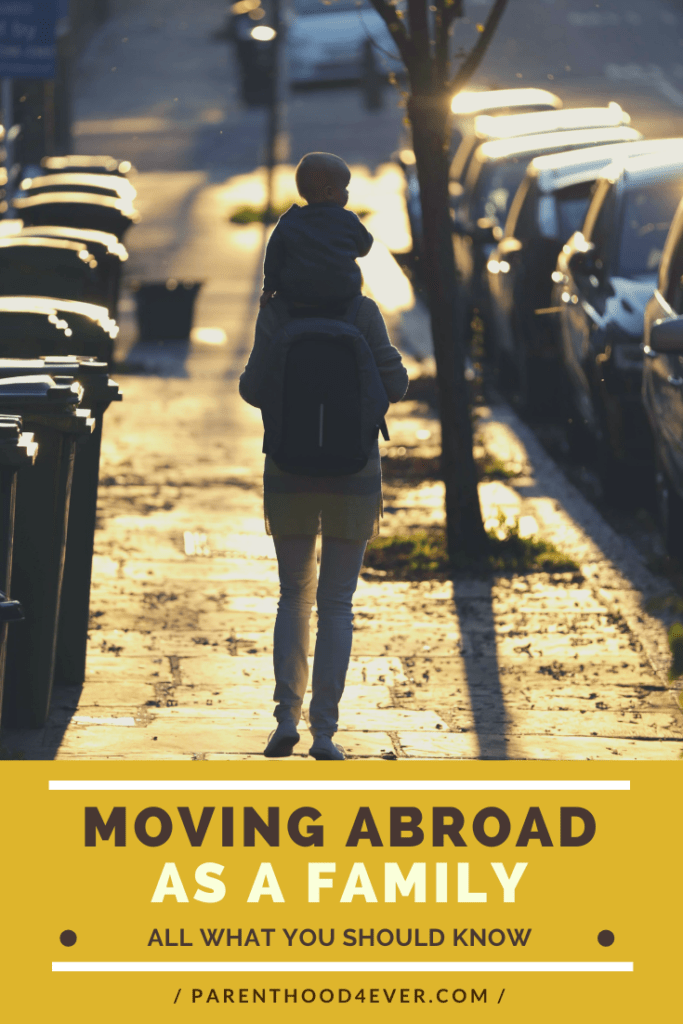
1. Employment
This one comes first to our mind before even thinking of moving overseas. Do you have a full-time employment contract or are you planning to job hunt on-site? Are you a freelancer? The type of employment matters a lot when it comes to the point of your cost of living, so it is extremely important to consider what you are going to do as you move abroad with kids or alone. It is also a good idea to think about potential employment if you move abroad with no money at all which is absolutely common and doable.
Check on basic salaries and benefits regarding your job title at the specific area you are going to relocate to. This way you will be aware of what to ask for. Read more about job hunting, job search sites, and practical tips.
2. Accommodation
It is no secret, the majority of our expenses usually go towards accommodation. We have to consider rental fees and all utilities attached to that (i.e. gas, electric, phone, broadband, and water).
Based on our experience living as expats in seven different countries, it is always worth checking out the market first, although it might seem difficult to do so remotely, below is the list of questions that may help you:
- What is the distance to my workplace?
- What is the distance to the city center?
- Is it a commutable area?
- Is it a cheap area? What are the cheapest ones?
- Is it a safe area? What are the safest ones?
- Do I have special requirements, for example, is there a park nearby, pre-school or education centers, etc.?
- Is it accessible enough?
You can always get a temporary place before you find your perfect home.
3. Cost of life
Then we are left with the amount we can spend every month. Let’s make sure it will be enough to cover one of the major points:
3.1. Childcare
In the UK, the rates are massively high for childcare. To be honest with you, I have no idea how single parents can afford to rent a house and send their child to a nursery because even if your salary is above average, there is no chance in the world you will be able to cover both and buy food too.
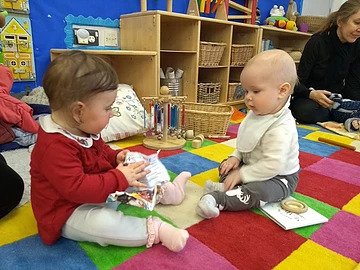
Rates for childcare varies depending on the Borough you live in. Northern London is considered to be higher in expenses than southern. We have lived in NW10, NW9, and SE15. I agree that living in the south is quite nice, very safe and the places that are offered for kids are enormous. We have visited all children’s centers in the Peckham area, plus a library: more kids, more toys, huge spaces, fruit snacks, and water offered every time after play, then story time and singing. I have never seen anything like that in NW.
Childcare in SE is cheaper indeed. You will be able to save £100 to £400 for sure. Also, it is very important to consider the benefits given by the government and your current employer. At the end of the day, if you live in London, get prepared to spend almost the same amount on childcare as for the apartment rent.
Read More:
3.2. Food
Of course, food is one of the main factors to consider too as it is something keeping us alive. But how to know the average amount you might spend per day? We have come up with an interesting idea: we would search for the major retailer, such as Tesco, Morrisons, or any company that provides food delivery service at the place you are about to relocate, and we would make a monthly purchase (without proceeding to checkout) of everything we eat on a usual basis.
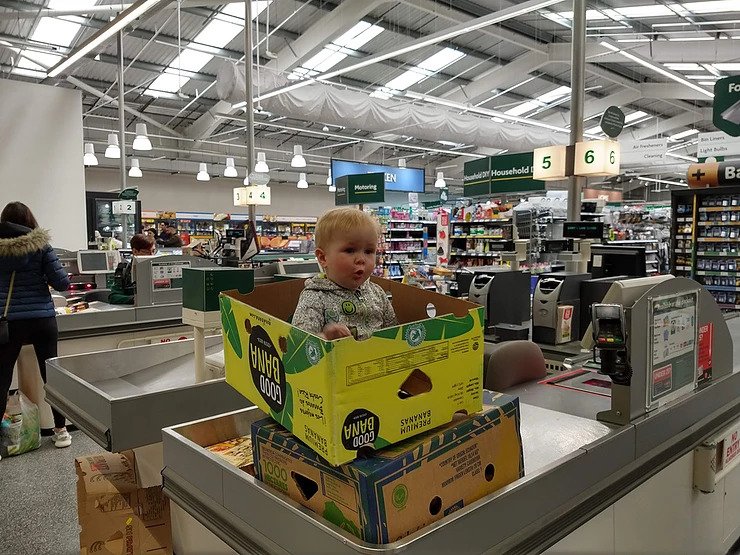
If you are an outgoing person, it is worth checking out prices for local restaurants, pubs, and bars. For example, in the Czech Republic, we were never short of spending money going out, but after moving to London, we thought four times and invited someone to our house instead. To give a comparison, to order one beer in a pub in London is worth eight bottles of beer in Prague. Besides, most of the tubes are closed by midnight while in Prague you have got night public transport or a cheap taxi service.
3.3. Transport
Every city has its own transportation rates, but it is always important to check on a monthly pass, especially if you chose to live in expensive cities.
The Czech Republic has its own pass for all public transport called “Litacka”. After you set up a card, you can choose to pay for a 30-, 90-, 150- or 365-day ticket, starting from 18.50£ per month. More about it and transportation in the Czech Republic read here. Also, keep in mind that public transport there for all children under six is free!
Mexico and Argentina, as well as China, have a top-up option. We have always used to top up the card as we ran out of credit. The same goes for London, we never paid a monthly fee because we figured out to top-up is a cheaper option for us. Though it depends on the area you live in, in most cases, it is worth considering monthly or multi passes.
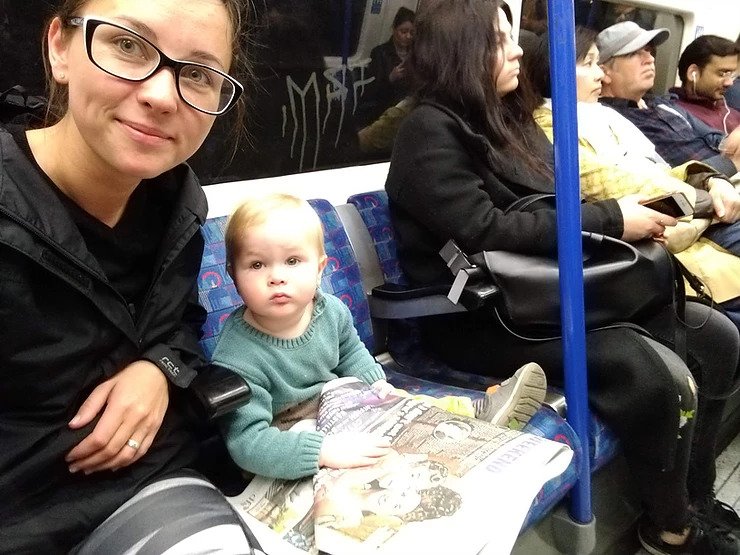
3.4. Gym, special clubs, leisure activities
We usually calculate extras. Some of the things we know we will do or places we will attend are automatically included in our budget. For example, I do gym and my baby does swim classes, so I definitely check on average membership prices and include them in our final expenses list.
3.5. Extra shopping
We do all love buying new things, and even if we say no, Amazon shopping does suck you in, especially if you have a baby or kids in the house.
What we basically do is check on the leftover – the amount that has been left after taking into consideration all points mentioned above, and see if this is something we are happy with.
3.6. Savings
As a “proper” family, we want a house, a car, another house, a motorbike, and a house to generate a passive income (nobody forbids you to dream!). So, we do consider a monthly amount to put on our savings account too.
Doesn’t sound like a bad idea, does it? In the end, it is all about self-control and being able to actually save money rather than spending it again and again.
4. Insurance and health
Health and well-being are our everything, so we would always look it up and check how much it would cost us on an average basis, in case of emergencies and worst-case scenarios. In the beginning, we choose Nomad Family Travel Insurance, while revising our options locally. A lot depends on your work status, benefits, and government support too. It is worth checking all of it before jumping into paying extra insurance bills.
We hope we managed to clear it up a bit and make your next move smooth and easy. At the end of the day, try to relax and get the most out of it as a family.
IMPORTANT: We created the Family Store especially for you. By clicking on the image below you can find anything from Newborn’s First Kit, Baby & Family Essentials, Kids Travel to Travel Gear. We hope you will find something valuable for your own adventures!
Our shop contains products from other companies that we love and use! Everything is based on our values of quality over quantity.
To get more support from parents and family travelers, join our Parenting Support Group.
And follow us on Instagram to know our crazy expat life!
If you liked the article, please spread the word by sharing our pin. We would highly appreciate it!
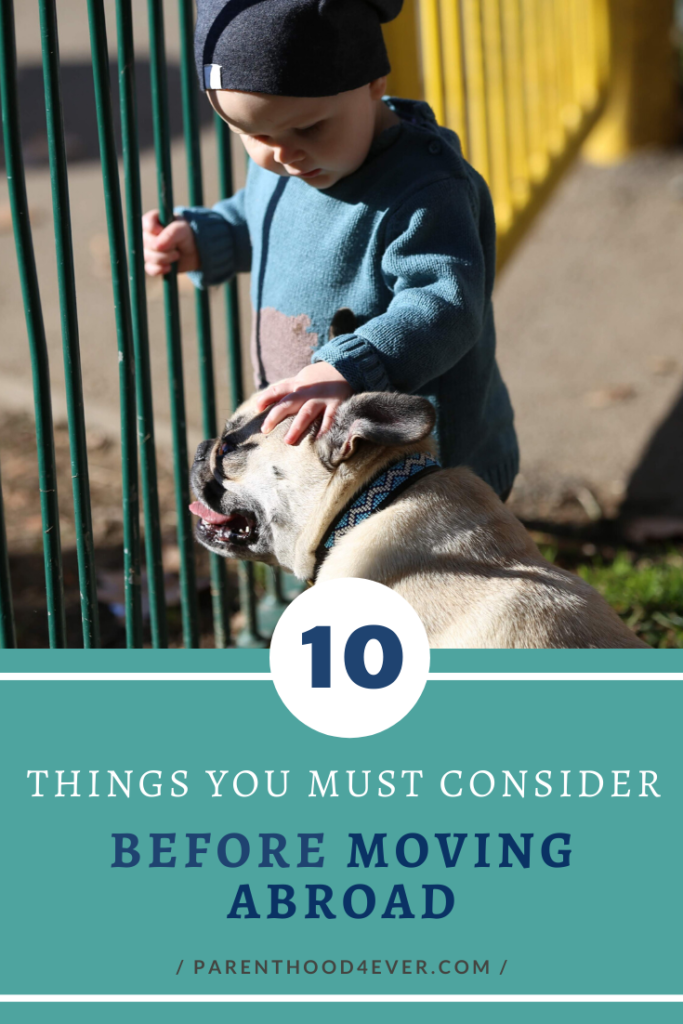
Also, check out:
- Want to move abroad? Here’s how to do it in one-month time: a step-by-step guide.
- What to do when buying a house in the UK for the first time.
- How to rent in London | Setting up gas and electricity for the first time.
- The Ultimate Guide To Children’s Centres And The Best Free Baby Activities In London.
- All you should know about childcare options in London.
Welcome to check out our best product selection for parents and babies, including traveling gear and resources here.
This post may contain affiliate links that we may or may not receive a small commission for, at no extra cost to you. This helps to fund our blog but we never advertise for anything we don’t personally love or recommend. There is never any pressure to buy anything, we just like sharing things that make our life easier and help you find them if it is something you are looking for. Please, see our full disclosure here.

